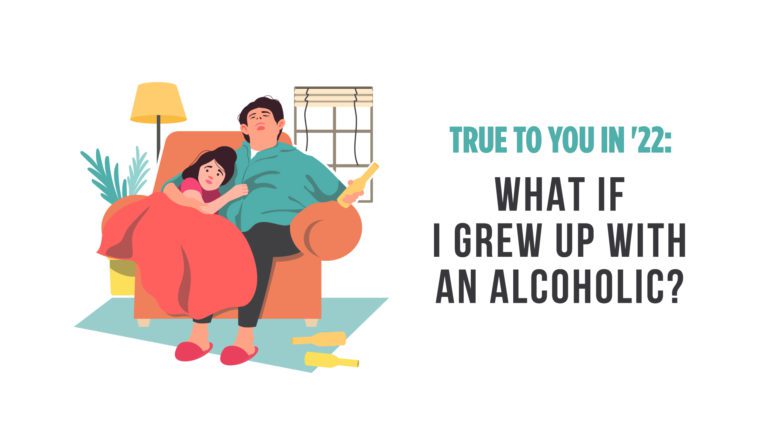Shannon is worried about the way Derek drinks. He could always “hold his liquor,” but lately it seems to be more and more important to him. She has tried to talk with him about how his drinking affects their kids, but typically gets the same response: “I don’t hit them. I’ve never yelled at them. I’ve never missed an event. If my drinking is creating a problem, it’s because you are creating issues in their minds that don’t exist!”
“I don’t hit them. I’ve never yelled at them. I’ve never missed an event.”
Shannon remembers overhearing her mom having the same kind of conversation with her dad. She remembers her mom being upset, but also saying, “Your dad works hard. He just likes to relax.” She recalls worrying about her mom crying in the kitchen. She wondered why most evenings, especially those when he dad was drinking, he was asleep in his chair long before the rest of the family went to bed.
Alcohol dependency brings about irrational and erratic behavior, as well as denial of current situations. When one is coming to terms with their dependency, it is not uncommon to focus on one’s self. The maybe-I-have-a-problem person often fails to realize the ways their actions affected the ones around them, especially their children, until further along in the recovery process.
A common theme heard from people who have not yet decided to admit their addiction is that the only person they are hurting is themselves. Common comments include, “I’m a happy drunk!” Or, “I work every day of the week and my family has everything they can dream of. I’m not hurting anyone!” While these may be true to the extent of regular work and good income, physical and verbal abuse are not the only consequences of living with someone suffering from alcoholism.
Children of alcoholic parents develop flawed behaviors and thought processes from being around someone who denies the reality of their experience.
Children are a lot like the family dog. They’re watching their parents all the time. They’re familiar with the smallest modification in routine, a subtle change in voice, statements that don’t align with what they’re actually seeing or experiencing .Children of alcoholic parents develop flawed behaviors and thought processes from being around someone who denies the reality of their experience. When what they see fails to match what they hear or are told it’s hard for them to what is true—to develop trust in others.
Children of alcoholic parents are also more likely to struggle from being parented by someone whose primary focus or priority is on maintaining their connection with alcohol. Children raised in this environment often have a sense of responsibility that was either explicitly or inadvertently thrown on them that they carry into adulthood.
According to Adult Children of Alcoholics (ACOA), children raised in this type of environment tend to have an overdeveloped sense of responsibility, which then creates a desire to be hyper-focused on others instead of themselves. There can be a fear of abonnement towards people in their lives, or a sense of guilt if anything in the relationship is wrong, even if they are the ones being hurt. This reliance on others and the feeling of guilt can bring the children of an alcoholic parent’s right back into the same cycle as their parents. The instability they grew up with often makes it difficult for them to discover and befriend safe role models since the environment they grew up in was “normal” to them.
“You’ve given me all the problems, but what about the solution?”
Acknowledging that one’s parent struggled with addiction to alcohol is not a death sentence, but rather an act of courage. It’s often very hard, but also very helpful, to really look at some consequences that may develop if one or both of your parents were/are alcoholics. It’s important to understand the consequences that may be passed along to you and your children.
You may be thinking “You’ve given me all the problems, but what about the solution?” The answer is to move towards being the parent to yourself you did not have growing up.
ACOA states “The healing begins when we risk moving out of isolation. Feelings and buried memories will return. By gradually releasing the burden of unexpressed grief, we slowly move out of the past. We learn to re-parent ourselves with gentleness, humor, love and respect.”
Support and forgiveness are a huge part of moving towards healing if you grew up in an environment created by alcoholism. Support can be found in Al-Anon or ACOA groups where others just like you meet to share their stories and encourage each other.
Forgiveness of your parent may or may not come. Ultimately, forgiving yourself and acknowledging the burden you have carried feeling responsible for things outside of your control, is the goal of programs and support groups like ACOA. To learn more you can check out their website here https://adultchildren.org/
Good Dads look at their circumstances and ask if the story they tell themselves is the same story others would tell about them. If you have read these articles and think you may have a drinking problem there is help for you. If you had an alcoholic parent and recognize how this affected the way you treat your children, there is also help for you. Identifying your role in the family and your goal to be a good dad is the first step. There are others with the same experiences or the same type of upbringing. Talking with them can help bring growth and healing. If you would like help, or have questions that need to be answered you can find out more at www.gooddads.com.
About Author
Drew Dilisio is the Community Support Specialist and Counselor at Good Dads. He is a recent graduate of Evangel University’s Clinical Mental Health Counseling program, a husband, and a father. He can be reached for questions or comment [email protected]

